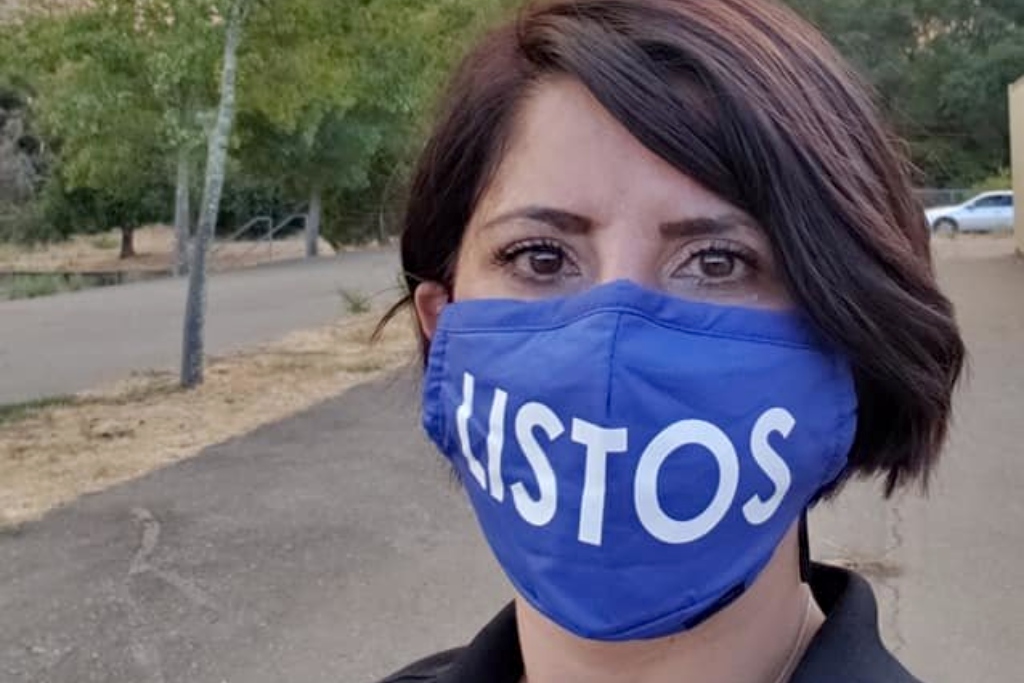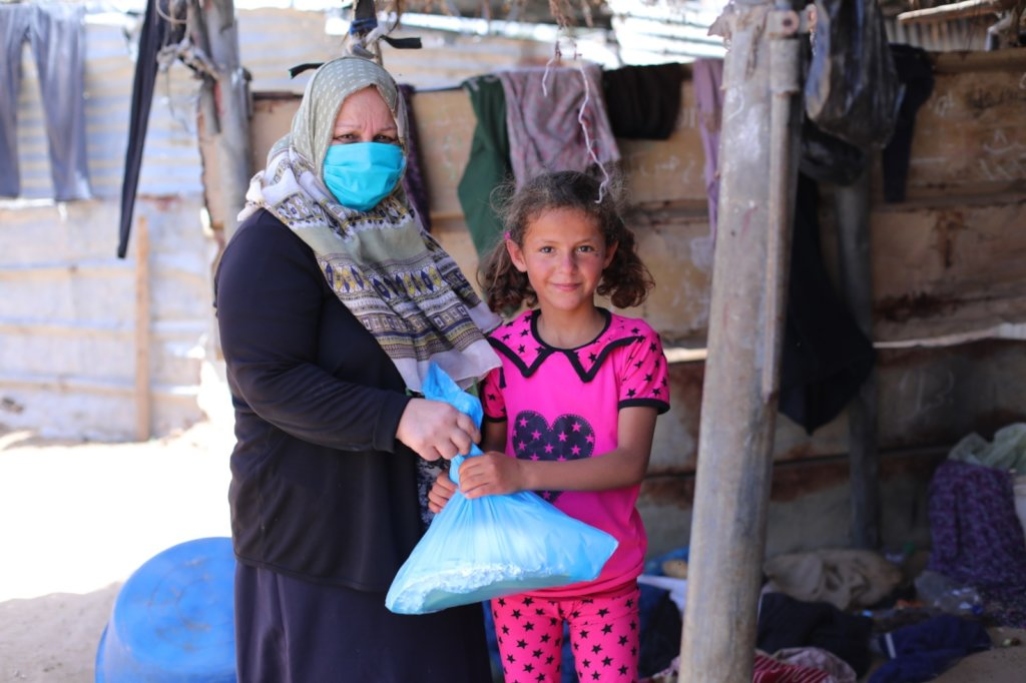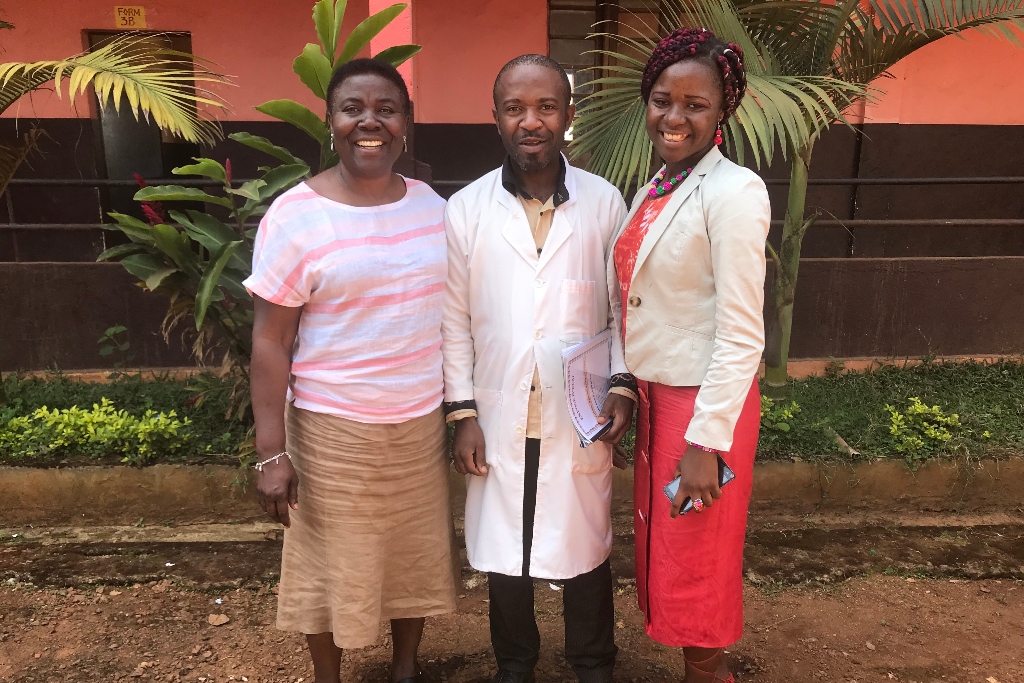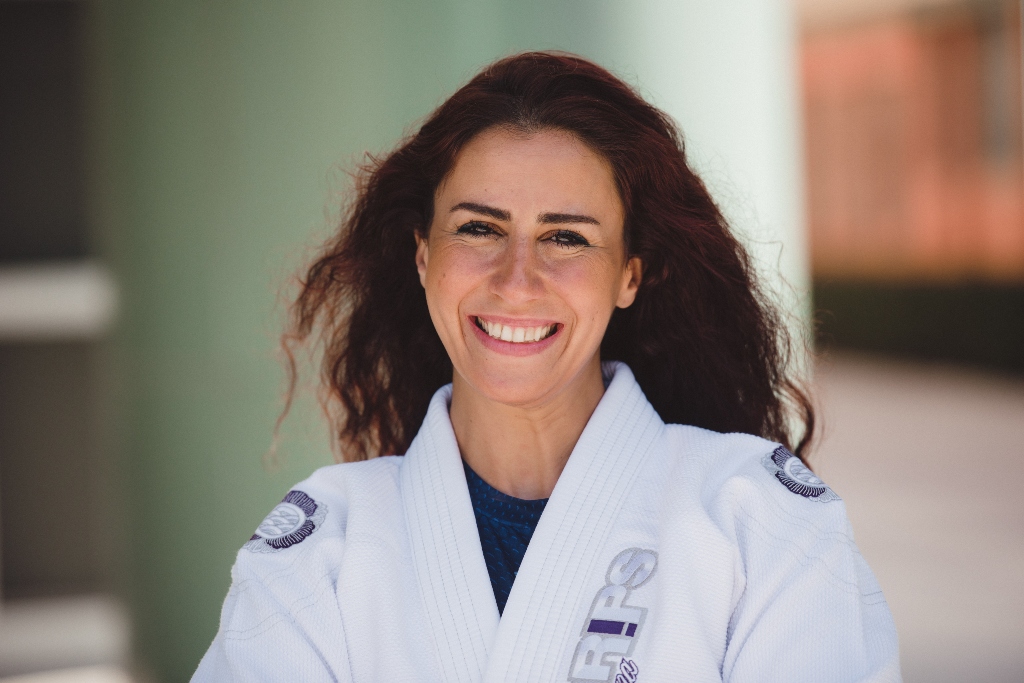Meet Milton, Alma, Mrs. Najah, Jacqueline, and Rima—leaders making lasting change in their communities.
 Photo: Handrez García
Photo: Handrez García
“Chaikuni” means “spirit of the forest” in Shipibo-Konibo, an Indigenous language spoken in the Peruvian Amazon. The Chaikuni are the guards of the rainforest—people like Milton López Tarabochia.
Milton protects the communities and natural wonders within the Peruvian Amazon as the Communications Coordinator for Instituto Chaikuni, and as part of the Indigenous cosmovision.
A three-time Climate Action Fund member, Milton and the Instituto Chaikuni team live up to their namesake by fostering environmental stewardship and Indigenous rights in close partnership with Native leaders, Indigenous youth, and local farmers. Whether they’re leading a permaculture training or developing a short film series featuring Indigenous women, reciprocity between human and natural communities is at the heart of Instituto Chaikuni’s work.
“The Amazon is vital for our health and survival, and Indigenous knowledge can help us protect it and use it in a sustainable way for a better quality of life,” Milton said.
Despite recent successes including a new regenerative agriculture workshop series and expanded permaculture training facilities, life on the front lines of protecting our planet isn’t easy. In the past few years alone, Milton has experienced unexpected shifts in the Amazon’s once predictable climate patterns, seen biodiversity decline, and watched as hectares of pristine rainforest were cut down—all at the expense of the Indigenous communities Instituto Chaikuni works to protect. Nonetheless, Milton remains hopeful for the future of our home.
“It is titanic work trying to change the world,” he said, reflecting on a career that has introduced him to groups and individuals that produced structural changes. “Those real cases are the ones that keep me standing in the fight for a fairer and greener world.”
 Photo: Nuestra Comunidad
Photo: Nuestra Comunidad
For 18 years, Alma Bowen worked as a 911 Emergency Service Dispatcher in Sonoma County, California. On the first night of the 2017 Tubbs fire—which killed 22 people and scorched thousands of acres, homes, and businesses—Alma was working the night shift.
Over the phone that night, she heard what it sounds like when communities are unprepared for disasters. She spoke with two migrant workers who needed to escape from the fire but didn’t know the address of the vineyard where they worked because they couldn’t read English. Alma tried to figure out their location based on letters they could recognize. But by the time she did, it was too late. The men had to flee, and she couldn’t send help.
“I really realized that first responders cannot possibly help everyone.”
So she took this momentary feeling of helplessness and turned it into a mission. Alma founded Nuestra Comunidad to ensure no community member has to think about anything except their safety during disasters.
The nonprofit shares disaster information, distributes “go-kits” packed with evacuation essentials, and provides rent abatement in the aftermath of destructive wildfires.
And Alma is determined to reach people in her community who fear being too visible if they ask for help or need information in a language other than English. Many Latino residents don’t even call for information or emergency assistance because they fear deportation.
“My position comes from 20 years behind the scenes learning where the holes are,” Alma said. “Now, we can help plug them.”
Help Alma prepare Californians for the next disaster.
 Photo: Rebuilding Alliance
Photo: Rebuilding Alliance
Mrs. Najah is a grandmother. She can proudly name all 19 of her grandchildren. And if she traces the family line back to her own grandparents, she remembers how they lived off of the oranges, olives, grapes, and figs they planted.
But in 1948, they were among hundreds of thousands of Palestinians forced from their homes during the Arab-Israeli war.
“When the people left their houses, they closed the door and took the keys with them, thinking they would return,” Mrs. Najah said.
“They thought it would be days—the days became 70 years.”
From Block J of the Rafah refugee camp in the Gaza Strip, Mrs. Najah saw the conflict over the land. She witnessed how the 14-year blockade Israel and Egypt imposed on Hamas-controlled Gaza limits Palestinians’ movement, stifles the flow of goods, and causes billions of dollars in economic losses.
And now, she’s watching COVID-19 strain what’s left of the struggling economy—but she’s also cooking.
As the Executive Director of the Women’s Programs Center-Rafah, Mrs. Najah manages a seven-woman team of cooks. In her kitchen, they make hearty meals of chicken and rice with pine nuts mixed in and limes for garnish.
With two-thirds of Gazans already struggling to get food regularly and unemployment at 45%, the pandemic and the 11-day war between Hamas and Israel in May 2021 made it even tougher for families to make a meal.
So Mrs. Najah serves anyone who needs to eat—cancer patients, people with disabilities, children—not only the refugees that make up most of Gaza’s population.
Since the project started through Rebuilding Alliance in 2020, her kitchen has fed thousands of people.
“When I go to a house, I ask the woman who lives there what she prepared for lunch,” Mrs. Najah said. “And I feel joy when I give her a good, hot meal after she says she did not prepare anything.”
Help Mrs. Najah provide more meals.
 Photo: Jacqueline Audige
Photo: Jacqueline Audige
Jacqueline Audige always says she has six children. Five have left the house—her youngest son is now in college. Her sixth child is Aumazo Inc., a nonprofit organization working against the forces that pushed her out of school.
The village where Jacqueline grew up in Cameroon didn’t have a high school, so she had no choice but to attend a school in the city, away from her home and family. Eventually, she ran out of money and was faced with offering sexual favors to afford school supplies or dropping out.
Jacqueline dropped out.
“That’s my motivation: to give back and prevent any other girls dropping out because of financial issues and being coerced into sex,” she said.
After immigrating to the US with her husband and children in 1991, Jacqueline was eventually able to get her high school diploma. And a bachelor’s degree. And a master’s degree. During a trip back to Cameroon more than a decade later, Jacqueline saw that level of education was still out of reach for many girls in her childhood village.
Without access to a private toilet and sanitary products—and with the stigma surrounding menstruation—many girls were forced to stay at home. Some had to repeat middle school classes two or three times. The vast majority weren’t even making it to high school.
Moved by the challenges girls continued to face and unwilling to let history repeat itself, Jacqueline talked with the students to understand their needs and started the nonprofit Aumazo. From supplying period pads to coordinating a local peer-to-peer tutoring program, Aumazo gives girls more chances to complete their education and build brighter futures than Jacqueline had.
Before Aumazo’s tutoring program started, only 25% of middle school girls enrolled in the program passed their high school entrance exam. After its first year, that number climbed to 45%.
In 2021, 100% of girls in the program passed.
“People need to understand that there is a big need out there, and it doesn’t take much to make a difference,” Jacqueline said. “I’m running the organization on shoestrings, but those shoestrings have a lot of value, a lot of weight.”
Help Jacqueline make a difference for students.
 Photo: Jaron Johns
Photo: Jaron Johns
Rima Yacoub’s jiu-jitsu skills have earned her gold medals and gratifying moments around the globe. She’s a woman and professional athlete living in Jordan—two things that don’t always play well together.
“A girl, refugee, or Jordanian alike looking for physical activity in Jordan will face male-only gyms, fields that have never hosted women’s games, and a lack of programming and teams that they can join,” Rima explained.
This lack of opportunity and access adds to the challenges girls and women face as they build their lives in Amman, Jordan’s capital.
As Jordan Programs Director for Reclaim Childhood, Inc., an organization run by women for women, Rima works to open doors and fields. Reclaim Childhood creates safe and inclusive spaces for underserved girls in Jordan—many of whom are refugees—and uses sport to develop their confidence, leadership, and teamwork skills.
Reclaim Childhood staff members focus on helping girls form friendships across different national, economic, and religious backgrounds. And they help girls build their self-esteem and integrate into local communities.
“Reclaim Childhood gets girls out of the house and onto the field, providing a safe space to play, learn, and build community,” Rima said.
She wants them to know there is more to life than they thought—and then have the chance to go out and get it.
“I always dreamt of being an Olympian,” Rima said. And as she trains for another jiu-jitsu match, she teaches the girls she works with that: “There is no expiration date to childhood dreams.”
Help Rima encourage girls to find their path through sports.
Featured Photo: Forest landscape restoration in Northern Ethiopia by WeForestRead about more changemakers in our 2021 impact report, “Community Forward: GlobalGiving’s Year In Review.
Find exactly what you're looking for in our Learn Library by searching for specific words or phrases related to the content you need.